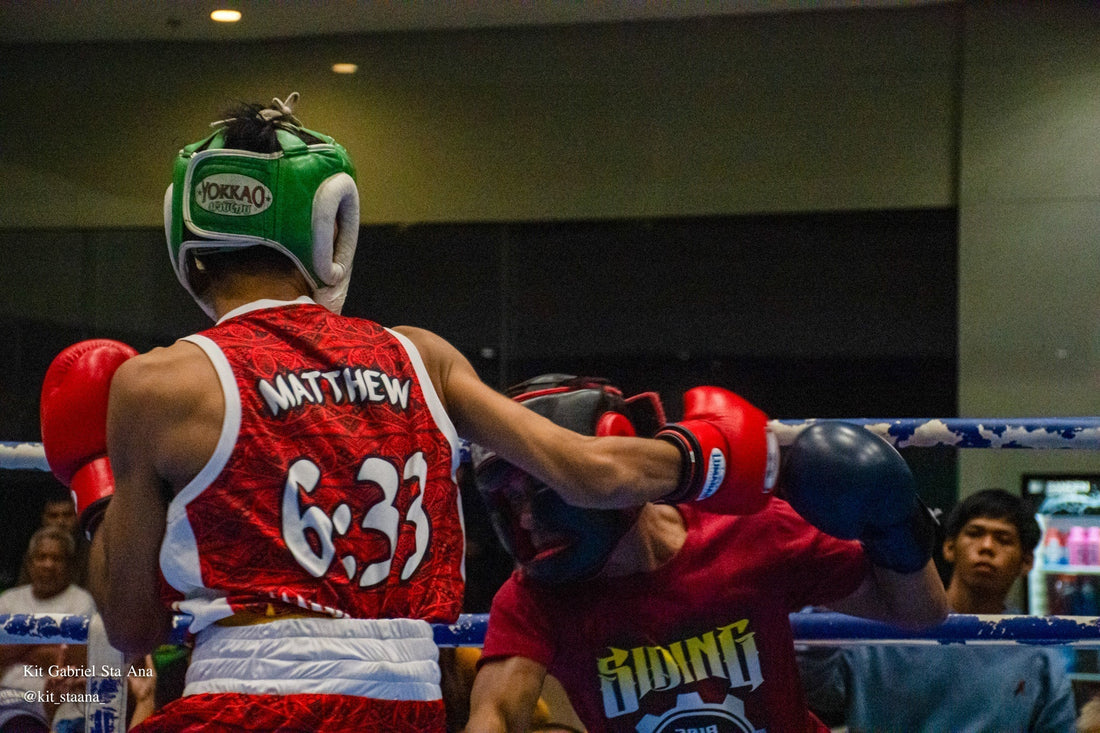
Opportunism vs. Inaction in Life and Boxing: Knowing When to Strike and When to Rest
Share
By Coach Jus
In both life and boxing, the battle isn’t just between action and inaction—it’s about knowing when to attack and when to wait. Opportunism, at its best, is the art of seizing the right moment. At its worst, it can turn into reckless aggression, leading to burnout, missteps, and losses that could have been avoided. On the other hand, inaction can be strategic rest or paralyzing hesitation. The line between the two determines success or failure.
Hippolyte Taine once said, "There are four types of men in the world: lovers, opportunists, lookers-on, and imbeciles. The happiest are the imbeciles." Those who take action, who see openings and capitalize on them, are the ones who shape history. But rest has its own wisdom. Those who do nothing may find a kind of peace, but at the cost of never making an impact. At the same time, those who push too hard, too often, risk self-destruction.
Opportunism: The Fighter’s Edge or a Dangerous Game?
In boxing, being an opportunist isn’t just about throwing more punches—it’s about throwing the right punches. Floyd Mayweather, for example, was the ultimate strategist, rarely taking unnecessary risks and ensuring every move had purpose. On the other hand, fighters like Muhammad Ali and Manny Pacquiao took chances—sometimes paying the price, but earning legendary status in the process. Their aggression made them revered by fans, even when it cost them in the ring. Many fighters have fallen victim to their own aggression, stepping into counters they never saw coming, but it’s often those who take risks that are remembered the most.
The same principle applies in life. Some people hesitate out of fear, waiting for the perfect moment that never comes. Others move too soon, mistaking movement for progress. True success lies in striking at the right time. But pushing forward blindly, taking every opportunity without assessing the risks, can lead to failure just as quickly.
Kim Woo-Choong challenges blind opportunism, saying, "You should be neither an opportunist nor a mere observer. Nor should you be a defeatist. What you should have is a broad vision of what you can do for the nation and the people, and furthermore what you can contribute to the history of mankind." His words remind us that action should be purposeful. It’s not just about taking chances—it’s about taking the right ones.

The Power of Rest: Knowing When to Pause
Rest is often mistaken for weakness. In boxing, knowing when to back off, when to breathe, and when to conserve energy is just as important as knowing when to press forward. The same applies in life. Not every moment requires action. Sometimes, waiting, observing, and recovering is the smartest move.
Rest isn’t just about avoiding burnout—it’s about recalibrating. A fighter who never rests fights sloppy. A person who never pauses makes poor decisions. There’s a difference between laziness and strategic patience. The key is to rest with intention, not out of fear or avoidance.
Over-opportunism—jumping at every perceived advantage without a plan—can lead to wasted energy, injury, or financial loss. In contrast, measured, intentional movement creates longevity and consistency. Knowing when to rest isn’t quitting; it’s ensuring you’re at your best when it matters most.

The Dark Side of Opportunism: Corruption in Boxing
Boxing, like life, isn’t always fair. The sport is notorious for corruption, especially at the amateur level, where money changes hands behind the scenes and young fighters often get exploited. I’ve seen firsthand how money gets siphoned straight from student allowances—funds meant for training, food, and gear—into the pockets of people who contribute nothing to the fighter’s journey.
Judges have been bought, matches rigged, and promising fighters have been pushed aside for those with the right connections. This isn’t just a conspiracy—it’s a well-known reality in the boxing world. Fighters who should be given a fair shot often end up being pawns in a much larger game, where financial and political motives dictate the outcomes. This is the ugly side of opportunism, where people take advantage not to win through skill, but to manipulate the system.
Despite this, real fighters persist. They push forward, knowing that the only way to truly make it is to train harder, fight smarter, and rise above the politics. The sport, at its core, remains pure—two people in the ring, battling it out. But outside the ropes, opportunism can turn into exploitation if left unchecked.
Striking the Balance: Movement with Purpose
The best fighters, and the most successful people, understand that life is a dance between action and inaction. Every punch thrown has to be calculated. Every period of rest has to serve a purpose. Opportunists don’t just chase every opening—they wait for the right one. And those who know how to rest don’t stay idle forever. They come back sharper, stronger, and ready to seize the next chance.
The Final Bell
Life and boxing reward those who act with purpose. If you wait too long, the moment passes. If you move too soon, you waste your shot. Train, stay ready, and when your time comes—take it. But also know when to step back, breathe, and prepare for the next round. Because a true champion knows when to fight—and when to rest.
#handsdownchinup #lumabanboxing #boxing #blog #boxingblog #strategy #balance #boxingmindset #boxingpolitics #corruptioninboxing
